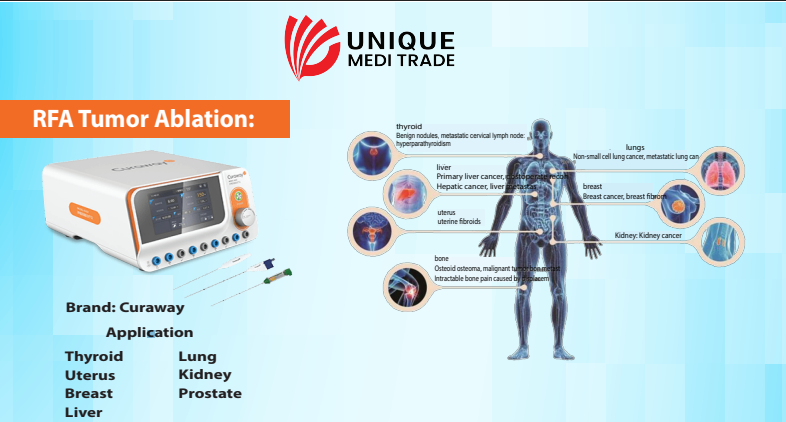RFA vs MWA in Thyroid Treatment
1. Overview
- RFA (Radiofrequency Ablation): Uses high-frequency alternating current to generate heat through frictional forces in tissue, leading to coagulative necrosis of the targeted thyroid nodule.MWA (Microwave Ablation): Uses electromagnetic microwaves to agitate water molecules in the tissue, generating heat and causing tissue destruction.
➡️ RFA (Radiofrequency Ablation) is currently considered better and safer for thyroid nodules, especially when high precision is required.
➡️ MWA (Microwave Ablation) is a powerful alternative, good for larger nodules or when faster ablation is needed, but with some caution.
Why RFA is Preferred for Thyroid Nodules:
- Better Precision Control
- Thyroid is close to sensitive structures (nerves, trachea, vessels).
- RFA allows very controlled heat delivery, minimizing risk to these structures.
- Lower Complication Rate
- Less chance of nerve damage (e.g., recurrent laryngeal nerve palsy).
- Proven Track Record
- More clinical studies, longer-term data, FDA approved.
- Considered the “Gold Standard” for benign thyroid nodules.
When MWA is Beneficial:
1. For Large Nodules
- MWA creates a larger and deeper ablation zone faster.
- May reduce procedure time for large thyroid nodules.
2. Advanced Systems Available
- Newer MWA systems with fine needles and better control are improving safety.
Final Verdict:
| Situation | Best Choice |
|---|---|
| Small to Medium Benign Nodules | ✅ RFA |
| Nodules Close to Nerves & Vessels | ✅ RFA |
| Large Volume Nodules | ⚠️ MWA (with experienced operator) |
| Recurrent Thyroid Cancer (Lymph nodes) | ✅ RFA (preferred) |
Expert Opinion:
➡️ For routine benign thyroid nodules, most experts still prefer RFA for its safety and precision.
➡️ MWA is catching up and could be more used in the future as technology improves.

